On June 27, the Law on Atomic Energy (amended) was passed by the 15th National Assembly with a high approval rate. VNA reporter had an interview with Mr. Nguyen Tuan Khai, Director of the Department of Radiation and Nuclear Safety ( Ministry of Science and Technology ) about the contents related to this Law, especially the new points compared to the old Law.
- Could you tell us what is the significance of the Law on Atomic Energy (amended) passed by the 15th National Assembly ?
Mr. Nguyen Tuan Khai: The Law on Atomic Energy (amended) has institutionalized Resolution No. 57-NQ/TW dated December 22, 2024 of the Politburo on breakthroughs in science and technology development, innovation and national digital transformation; Resolution No. 189/2025/NQ-QH15 dated February 19, 2025 of the National Assembly on a number of mechanisms and policies for nuclear power development, especially investment in the construction of Ninh Thuan 1-Ninh Thuan 2 nuclear power plants.
The Law on Atomic Energy (amended) ensures the comprehensive and direct leadership of the Party in law-making; institutionalizes the Party and State's guidelines and policies on the development of atomic energy for peaceful purposes; promotes decentralization, delegation of power, and simplification of administrative procedures. At the same time, it inherits and develops reasonable and principled provisions of the 2008 Law on Atomic Energy; thoroughly overcomes inadequacies and overlaps of provisions that may cause difficulties and obstacles in implementation. In particular, the Law strictly complies with international law; fully and promptly internalizes commitments and obligations in international treaties to which Vietnam is a member.
- In the current context, nuclear power is considered the central field of the Law on Atomic Energy (amended), both in terms of development goals and requirements for ensuring safety and security. How do you evaluate the role and management orientation of this field in the amended Law?
Mr. Nguyen Tuan Khai : The Law on Atomic Energy (amended) passed by the 15th National Assembly consists of 8 Chapters with 73 Articles, inheriting the provisions of the 2008 Law on Atomic Energy, consistent with the practice of state management in the field of atomic energy. The passed law has many "fundamental" points, creating a legal framework for Vietnam to be able to put nuclear power plants into operation in the next 5 years.
Nuclear power becomes a national strategy, meeting clean energy criteria, contributing to the goal of reducing carbon emissions, ensuring national energy demand and security, and creating new development space.
After a period of decline 10-15 years ago, nuclear power has now returned because the current technology is mainly generation III+ which has been proven to be very safe. Therefore, it can be said that nuclear power is the most important subject of the Law on Atomic Energy (amended) in terms of application development and safety and security management in the current context.
To facilitate the implementation of Vietnam's first nuclear power plant, the amended Law on Atomic Energy stipulates the application of international standards and standards of the technology-providing country. The project has expenses for safety assessment, technology assessment and training.
- Not only creating a legal corridor for nuclear power development, the Law on Atomic Energy (amended) also promotes the application of atomic energy for peaceful purposes, contributing to socio-economic development. Could you please elaborate on this issue?
Mr. Nguyen Tuan Khai: The Law on Atomic Energy (amended) meets the legal framework for state management in the field of atomic energy, including: Promoting the application of atomic energy in socio-economic development in the fields of health, agriculture, industry, etc., while ensuring radiation safety, safety, security and nuclear inspection, in accordance with international treaties.
The law also has a policy to strongly develop the application of atomic energy for civilian purposes in various fields. Classify the risk level of radiation impacts on humans and the environment for appropriate socialization, promote the application of the latest achievements of atomic energy to serve the people and socio-economic development.
Encourage businesses to participate in research and development of technology and industry in the field of atomic energy. In addition, the State has a program for training, fostering and developing human resources in the field of atomic energy; has preferential policies and uses of domestic and foreign experts; has preferential policies and supports for those who are trained and fostered in the field of atomic energy, gradually moving towards mastering nuclear energy technology to serve socio-economic development.
Gradually formed nuclear industry including nuclear power plants and development of nuclear reactors for research and radiation application.
The Law on Atomic Energy (amended) also focuses on developing domestic potential in nuclear technology, manufacturing equipment to serve the development of atomic energy applications, radiation monitoring, safety assessment and appraisal.
In the strategy on building localization capacity, the first phase prioritizes the capacity to manufacture equipment serving the development of atomic energy applications, radiation monitoring, safety assessment and appraisal, then moves towards the capacity to localize nuclear technology. In addition, this amended Law also promotes decentralization of management to localities according to the risk level of radioactive sources and radiation equipment in terms of safety and security; Build a system, management capacity and national database on atomic energy applications, ensuring safety and security.
The principle of ensuring safety and security has been demonstrated throughout each management object from radioactive sources, radiation equipment to nuclear materials, nuclear reactors and used nuclear fuel.
In addition, the provision of a separate chapter on Nuclear Safeguards has demonstrated the coordination and control role of the International Atomic Energy Agency (IAEA) to ensure nuclear activities in Vietnam for peaceful purposes, as well as the responsibility to comply with national commitments and obligations, especially in the implementation phase of the construction of a new research reactor and the upcoming Ninh Thuan 1-Ninh Thuan 2 nuclear power project.
Thank you very much./.
Source: https://www.vietnamplus.vn/tao-khung-phap-ly-de-viet-nam-van-hanh-nha-may-dien-hat-nhan-trong-5-nam-toi-post1046806.vnp


![[Photo] Prime Minister Pham Minh Chinh holds a phone call with the CEO of Russia's Rosatom Corporation.](/_next/image?url=https%3A%2F%2Fvphoto.vietnam.vn%2Fthumb%2F1200x675%2Fvietnam%2Fresource%2FIMAGE%2F2025%2F12%2F11%2F1765464552365_dsc-5295-jpg.webp&w=3840&q=75)



![[Photo] Closing Ceremony of the 10th Session of the 15th National Assembly](/_next/image?url=https%3A%2F%2Fvphoto.vietnam.vn%2Fthumb%2F1200x675%2Fvietnam%2Fresource%2FIMAGE%2F2025%2F12%2F11%2F1765448959967_image-1437-jpg.webp&w=3840&q=75)

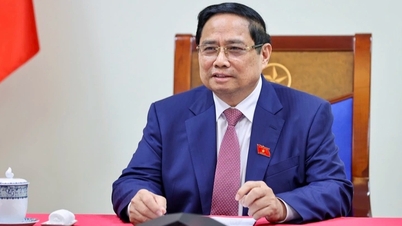

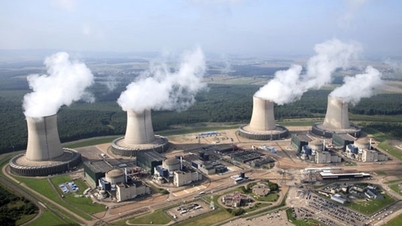

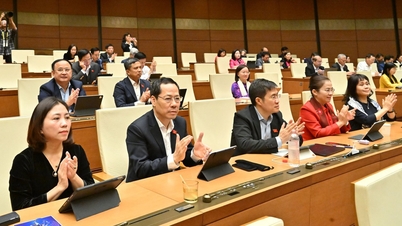


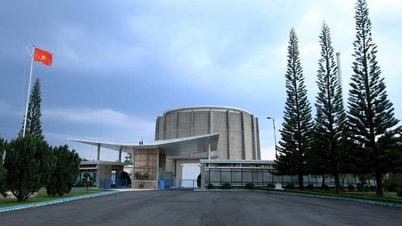

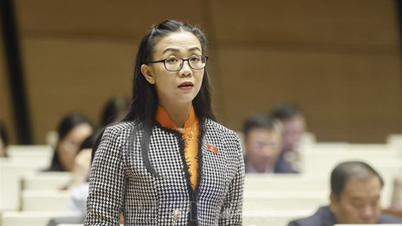




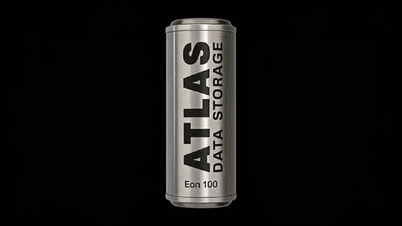







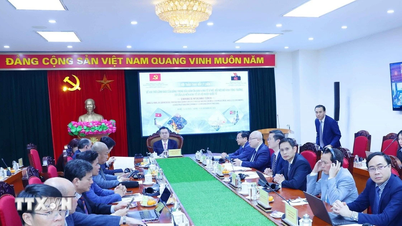

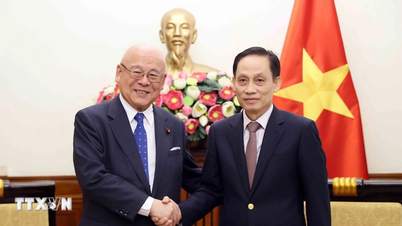
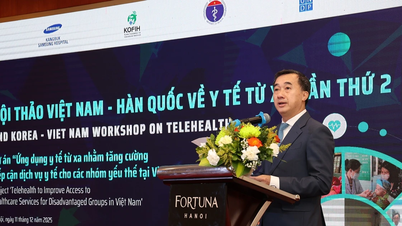
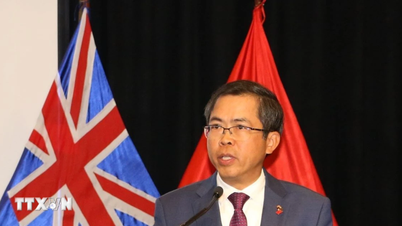





















![[OFFICIAL] MISA GROUP ANNOUNCES ITS PIONEERING BRAND POSITIONING IN BUILDING AGENTIC AI FOR BUSINESSES, HOUSEHOLDS, AND THE GOVERNMENT](https://vphoto.vietnam.vn/thumb/402x226/vietnam/resource/IMAGE/2025/12/11/1765444754256_agentic-ai_postfb-scaled.png)

















































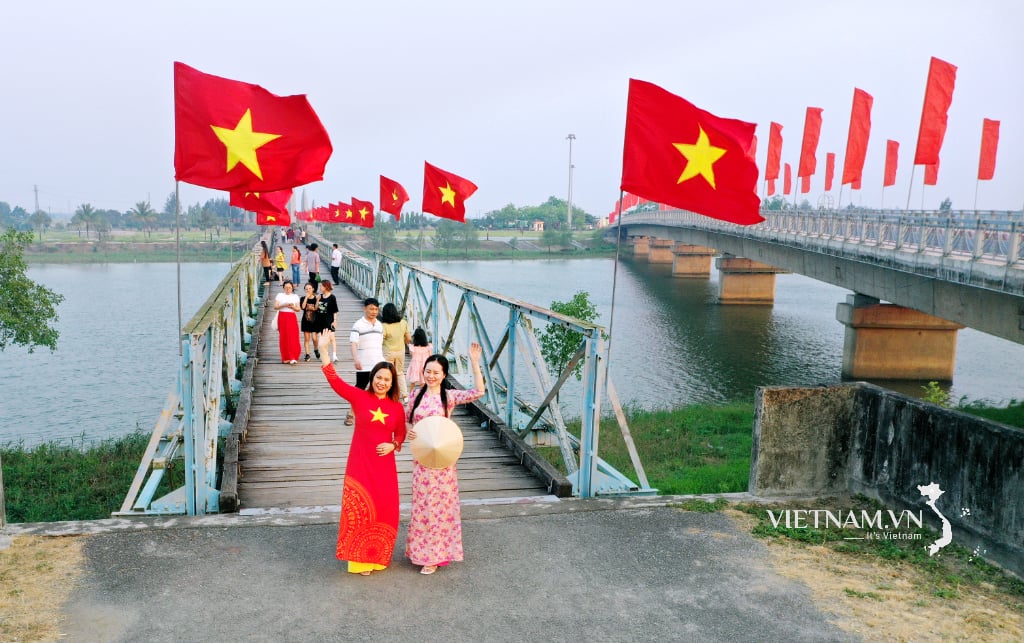


Comment (0)